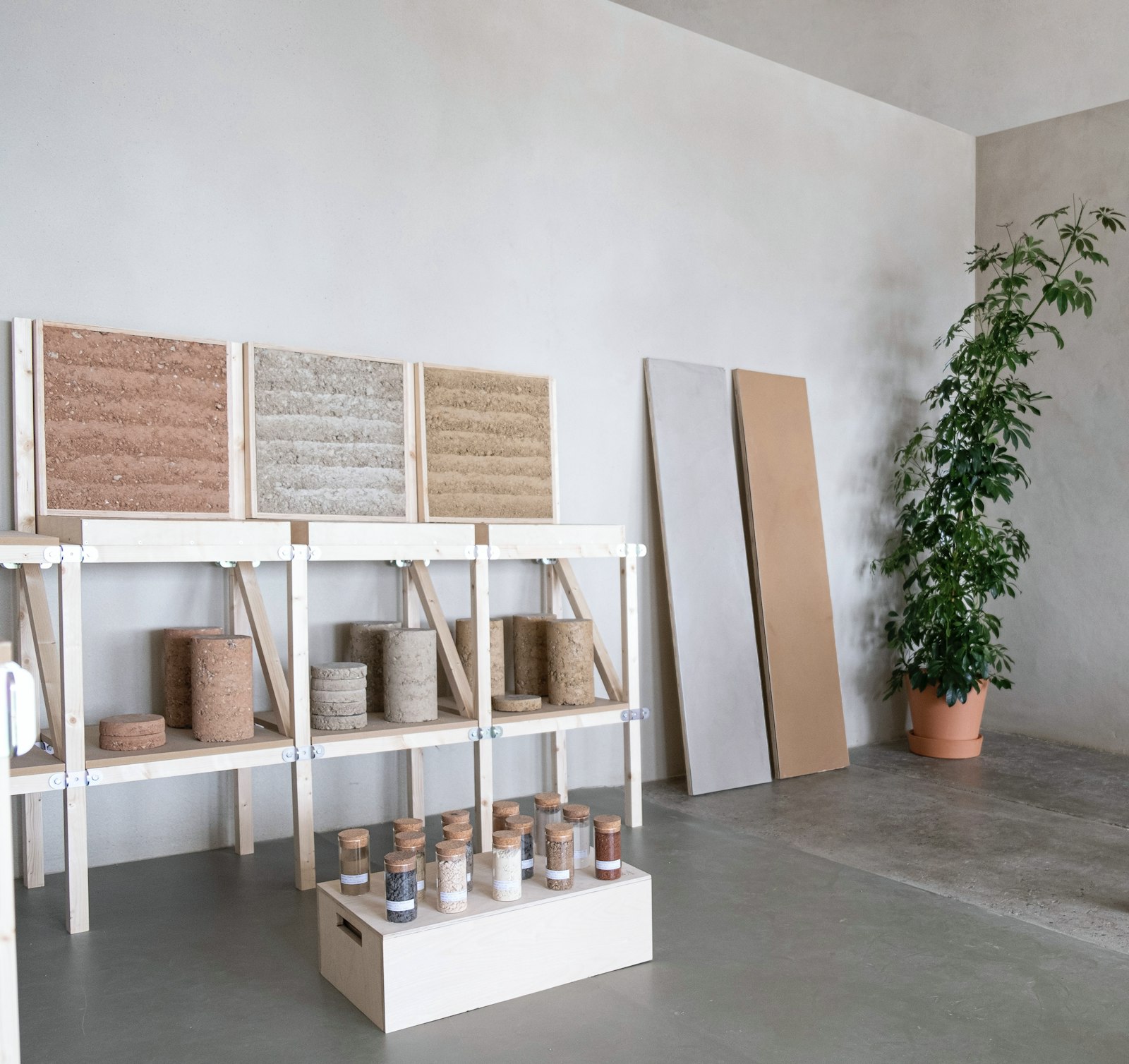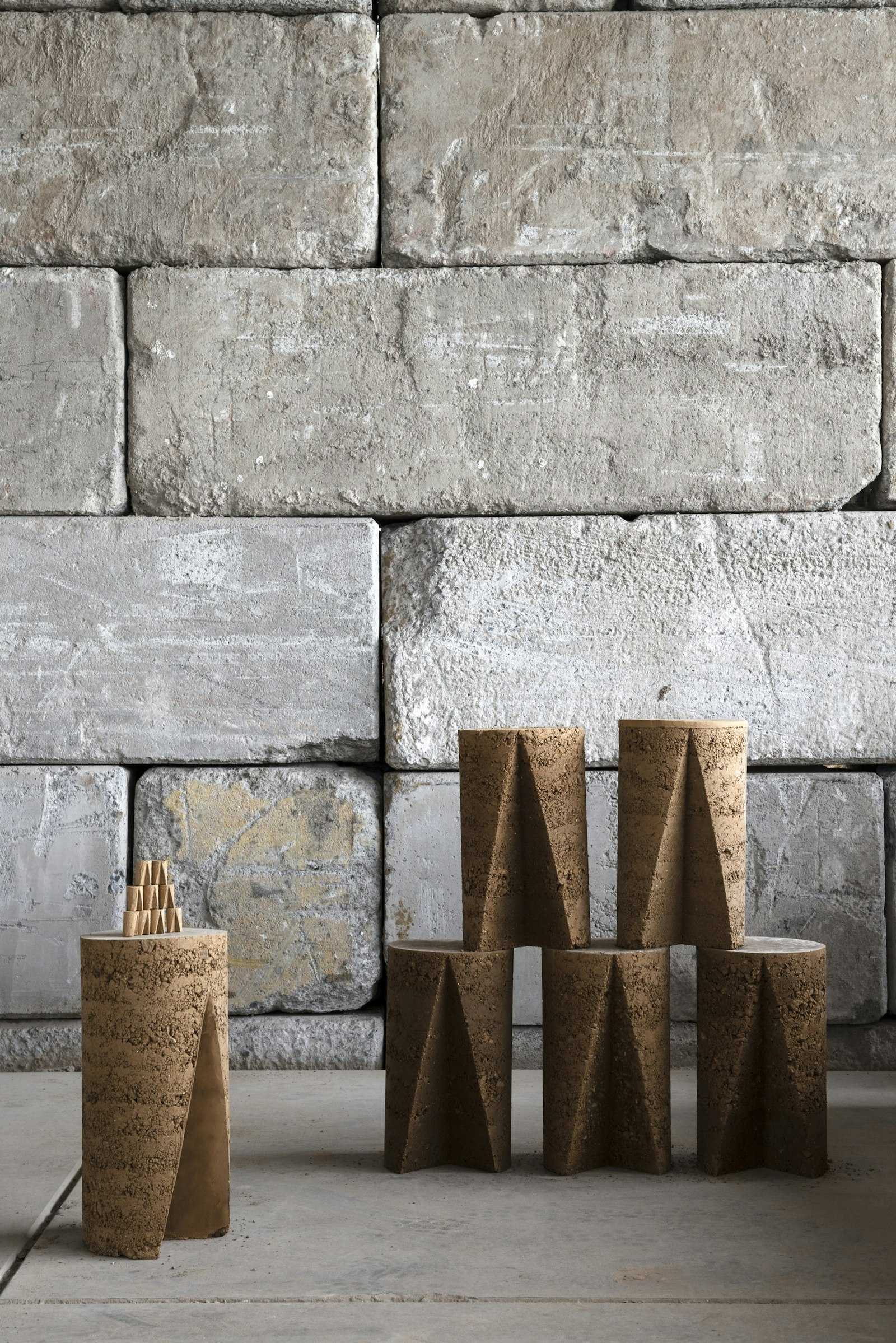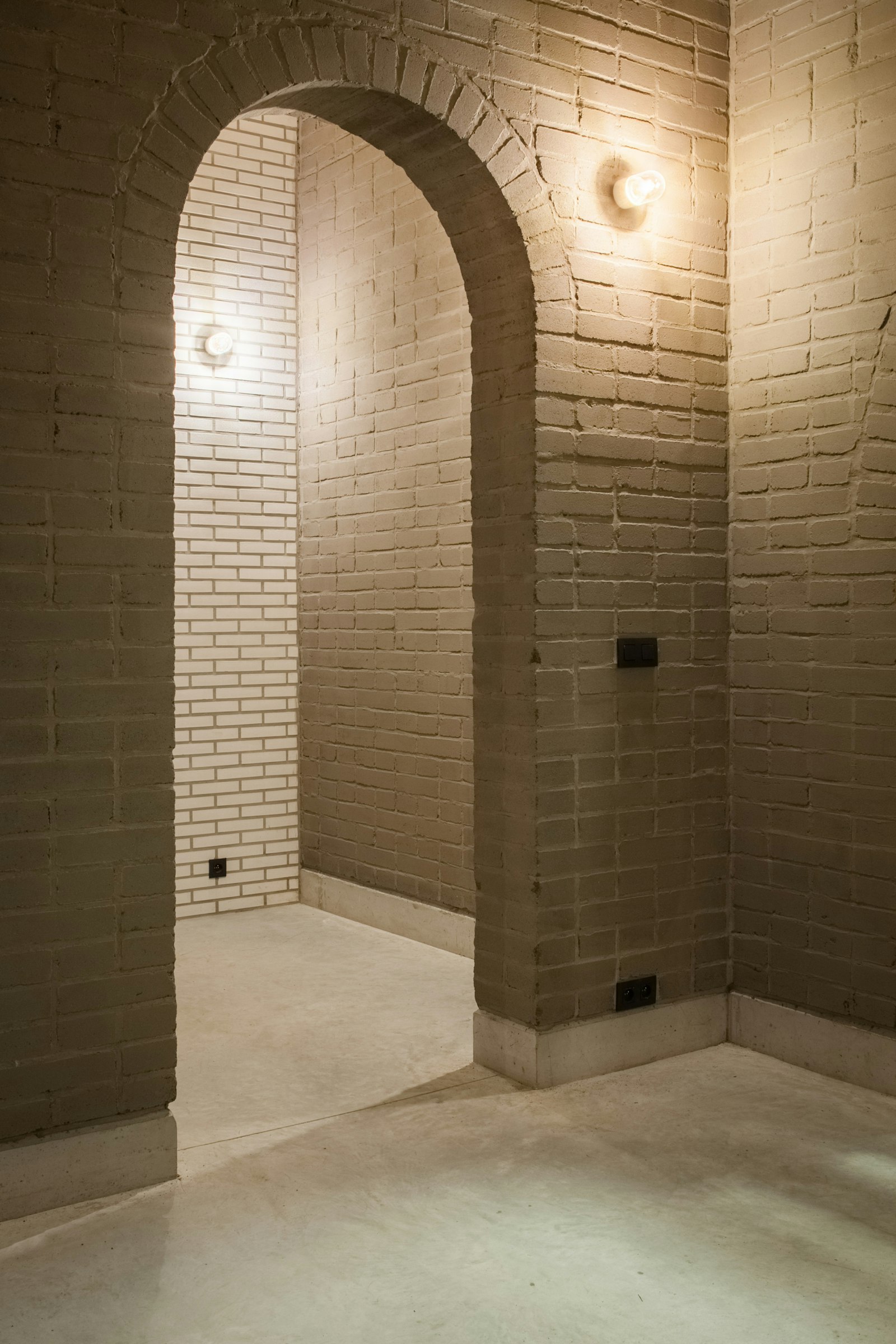de Velde
BC Materials
Using a CO2-neutral production process, BC materials developed rammed earth for floors, walls or furniture, clay plaster to cover walls and earth blocks for walls (including load-bearing), furnaces etc. They are original mixes, reformulations and models based on heterogeneous and pure, local materials. Since no chemical change takes place in the materials, the products’ basic elements can be reused, even after 20, 50 or 100 years of use. The materials have a proven positive and regulating effect on internal air quality, which can be worse than external air quality. In addition, clay materials form thermal mass that cools in the summer and releases heat in the winter. Consequently, they represent a realistic and resilient response to active climate change and increasingly hot summers. BC materials developed three clay products:
The Brusseleir is an ecological plaster to replace the traditional gypsum plaster. Clay plaster regulates the humidity of the interior climate, is fully vapour permeable, and four times better for the acoustics of a room than gypsum plaster.
The Brickette is a compressed earth block that can be produced using 600 times less energy than a traditional brick, and is better than the latter for acoustics and humidity. Ideal for both load bearing and non-load bearing walls.
The Kastar can be used for internal or external walls, and floors which are far easier to repair than a concrete floor.
By reusing local materials, BC materials reduces the depletion of scarce raw materials. Reusing what others consider to be waste reduces landfilling and damage to the living environment. Engaging in urban mining in the city centre shortens the chain and reduces transportation (including overland transportation), which contributes to global warming and climate change.



